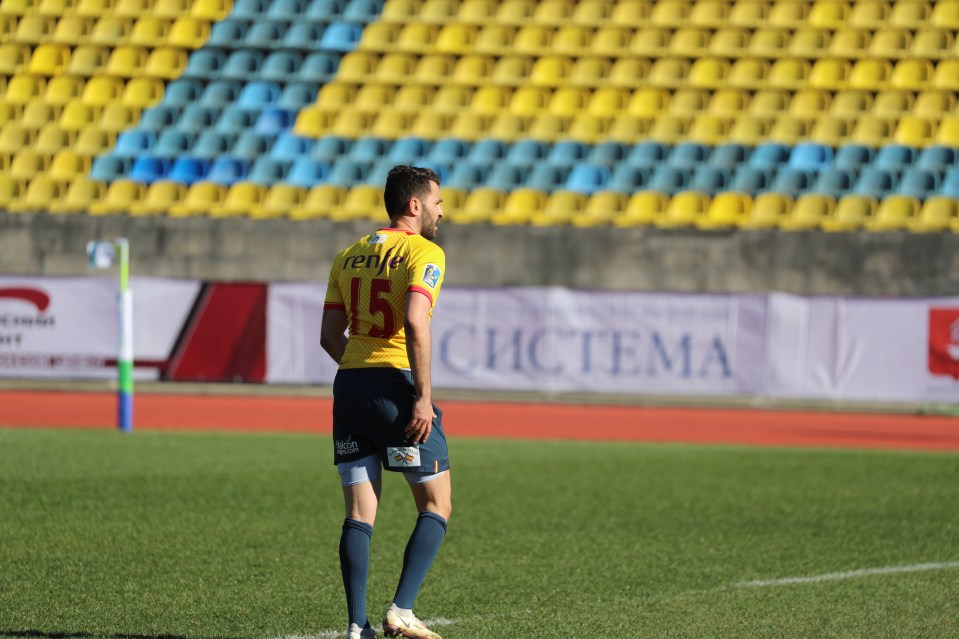Iberian rugby: The duo of nations mounting a Rugby World Cup challenge

In 2015 it was Japan beating South Africa in Brighton. In 2019 it was Uruguay beating Fiji in Kamaishi. So in 2023 why can’t it be Spain or Portugal beating Scotland in Lille?
Iberian rugby is on the rise – again. But this time the duo of Portugal and Spain are launching their frontier for a coveted spot at next year’s Rugby World Cup.
In the race between Europe’s second-tier countries for a place in the pool stages in France, Georgia unsurprisingly lead the way – they are unbeaten in their last 22 matches in the Rugby Europe Championship, a shadow Six Nations with relegation but no promotion.
Behind the Lelos, though, Romania lead Spain by a single point while Portugal are just five points further behind.
Should either Iberian side make it to the pool stages, it wouldn’t be their first time at the showpiece event – Spain appeared in 1999 while Portugal had an outing in 2007 – but it would be significant.
The usual roll call includes Georgia and either Russia or Romania, but Spain came close in 2019.
They had officially achieved a play-off spot through their results in Europe but were stripped of the chance due to fielding ineligible players during the competition.
That sour experience has done little other than motivate Los Leones, however, with the Spanish beating Russia in Sochi last week to back up a strong performance against the Netherlands a week prior.
So just what is going on across the Iberian peninsula, and why are Spain and Portugal suddenly threats on the European stage?
The Basque Country has helped Spain’s rise. Bilbao hosted the 2018 European rugby finals and the Basque region in France has long produced international talent – including Bayonne-born Guillaume Rouet, who now plays scrum-half for Spain.
The 2016 French Top14 final was held in the Camp Nou in Barcelona, too, due to football’s European Championship taking place in France. There is a recent history of Europe embracing Iberia into the oval balled game.
But the push for World Cup spots can also be traced to an invention of last year.
The Super Cup – a club competition for sides outside the Six Nations – comprises eight teams from seven countries including Spain’s Castilla y Leon Iberians and Portugal’s Lusitanos XV.
Both Iberian sides have qualified for the inaugural semi-finals, with Lusitanos scoring 29 out of 30 points.
But in the creation of the competition, both Spain and Portugal are finding a consistency in having players play together – rather like the Jaguares Super Rugby side who once fed Argentina.
Lusitanos’ coach Patrice Lagisquet is also the head coach of Portugal – and a lot of his national squad are playing in the Super Cup.
Portugal also managed to become the first side since 2017 to stop Georgia from winning in the Rugby Europe Championship – when they drew 25-25 earlier this month.
History too tells us that Iberia had rugby competing at a level able to challenge the bigger unions in Europe.
When the women’s Five Nations expanded to six, they included Spain in their set up.
And though they were later controversially replaced with Italy, they managed to win around a third of their matches – a similar stat to Italy and one much better than Scotland.
It would be unfair to say the six big unions in Europe are simply protecting themselves in an era of uncertainty, but it’s clear the standard of rugby is improving throughout the continent.
Globally in fact, we could see Chile stop the United States from competing in next year’s men’s World Cup and the likes of Kazakhstan and Columbia qualify for the women’s World Cup in place of Scotland.
There is a global shift in the way rugby is showing its competitiveness and Iberia is surging ahead with the aim of leapfrogging the traditional World Cup goers in Georgia, Romania and Russia.
But take the purely competitive aspect away, and just imagine Spain or Portugal at a World Cup hosted in France. It would be a great opportunity to showcase all they have achieved in recent years and the race to be there is well and truly on.